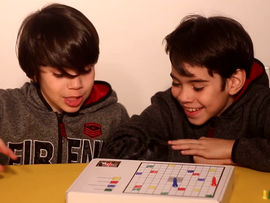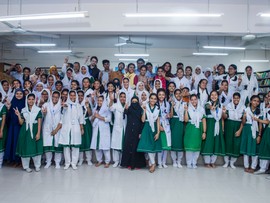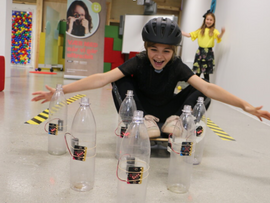IMDA's Digital Maker Programme
Where age is no barrier to being a Digital Maker
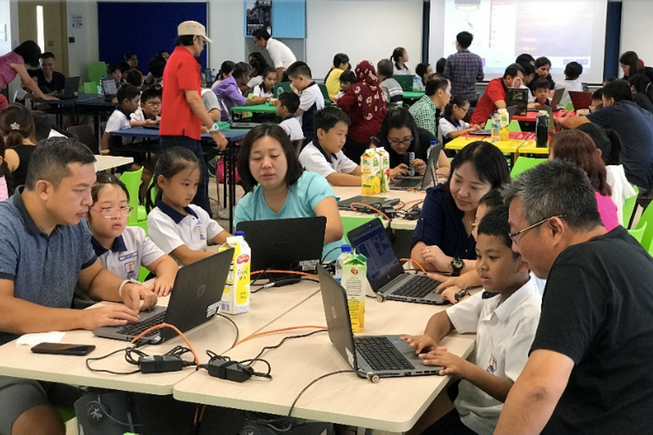
IMDA
Children. Teachers. Parents. Older people. In Singapore, no one is excluded from digital education. The Digital Maker programme, launched in 2017 by the Infocomm Media Development Authority, uses the micro:bit to encourage innovation, foster collaboration and empower everyone to create with technology.
To kickstart the programme, 100,000 micro:bits were given to Singapore’s public schools and the wider community. Commitment is key: principals had to apply to join the initiative and five teachers per school had to attend an educator workshop, where they learned coding skills and created a prototype micro:bit project. Computing is not part of the curriculum in Singapore, so the teachers were from subjects as diverse as art, music, PE and geography.

Students can now apply computational thinking to their everyday school life.

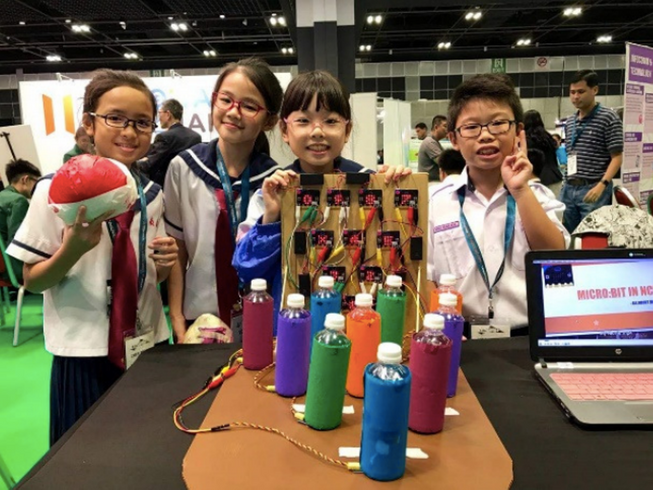
Nan Chiau Primary School students with their micro:bit bowling-pin tracker at EduTech Asia 2017
IMDA
For students, the focus was on “design thinking” – teachers challenged children to think about improving the world through coding, tackling issues such as mobility restrictions among disabled people. Each school was asked to submit one innovative lesson plan to the Digital Maker programme and these are now being shared with all schools in Singapore.
By April 2019, 220 of Singapore’s public schools (61%) had signed up to the initiative, benefiting 105,000 students. More than 800 teachers had attended an educator workshop. And the project has gone beyond the school gates: parent-child events are helping young people to teach their parents how to code, while a Digital Garage scheme is providing makerspace facilities and workshops in community centres.
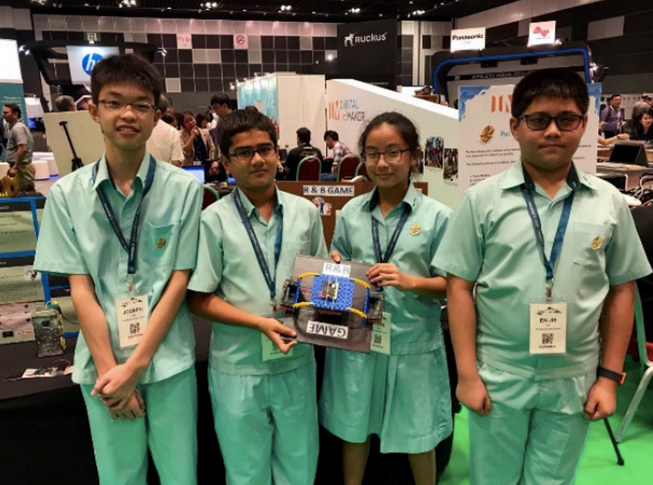
Pei Hwa Secondary School students made a micro:bit panic button to alert caregivers when a patient needs help
IMDA
Wilbur Wong, principal of Montfort Junior School, said: “Students can now apply computational thinking to their everyday school life to deconstruct and solve problems. We always tell our students and their parents that learning digital making is not about picking up the coding skills, because devices and coding languages will change with time. The important thing is for them to be familiar with the way of thinking in the coding process.”
One parent who attended a parent-child workshop said: “I think it’s extremely helpful for the parents to understand what the students are going through. We want to be able to see how we can assist them, encourage them, using the micro:bit.”
The Digital Maker programme has been so successful that further Code for Enrichment initiatives, with the micro:bit front and centre, are now bringing coding to even more young people. Meanwhile, Singapore’s Ministry of Education is considering whether to make computing part of the formal curriculum.
